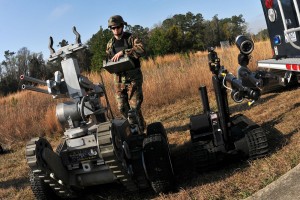As Connecticut frees up funding to match federal Small Business Innovation Research grants, early returns suggest the state has not succeeded in increasing SBIR awards to minority- and women-owned businesses.
Connecticut Innovations Inc. received a $100,000 grant in 2010 to do just that, under the Federal and State Technology (FAST) program, with the Rocky Hill-based organization hosting a seminar in February 2010 at Housatonic Community College in Bridgeport.
After eight women-owned businesses and three run by minorities received SBIR grants in 2010 ”“ out of more than 150 awards statewide ”“ similar percentages were on the books for some 70 awards last year listed by the state SBIR office and federal agencies.

Fairfield County had no women-owned businesses on the state”™s SBIR list for 2011 and just one minority-owned company.
That was D-Star Engineering Corp., a Shelton business owned by S. Paul Dev that is an experienced SBIR developer. In 2011, D-Star won an award to design a small diesel engine to power remote-controlled TALON robots used by the U.S. Army to defuse bombs or perform reconnaissance, in place of the batteries those robots currently use.
The state already trails the national percentages for awards to women and minority-owned businesses. Connecticut”™s 2011 numbers could change as additional award data come in ”“ the U.S. Department of Defense posts its SBIR selections fully six months after submission deadlines. Also, in a few cases SBIR awards went to projects listing women as the principal investigators.
Still, short of any surge revealed this spring of 2011 awards to Connecticut minority- and women-owned businesses, Connecticut appeared to get little bang for its FAST buck in the first year following the grant.
Deb Santy, who runs Connecticut”™s SBIR office, referred a request to Merrie London, a manager in the office.
“We know the country has a stronger focus on minority, veteran and women-owned companies through the SBA”™s FAST grant funding,” London said. Â “More outreach should increase the number of awards across the board. Â However, it can often take years for a company to win its first SBIR grant.”
Late last year, Congress reauthorized SBIR and the smaller Small Business Technology Transfer (STTR) program that provides funding for academic labs looking to commercialize breakthrough inventions. Under SBIR and STTR, federal agencies award grants of up to $150,000 to small businesses and labs to come up with solutions to problems that cannot be adequately addressed with products currently in the marketplace. Agencies then award larger grants of up to $1 million to get inventions deemed suitable for mass production.
Gov. Dannel P. Malloy is aiming to boost overall SBIR activity through $4 million in new funding that Connecticut Innovations is making available under a new SBIR acceleration and commercialization program.
Under the new Connecticut program, state funding may also be used to foster partnerships between small businesses and universities and collaborators, through joint technology development efforts.
Over the course of the SBIR program, Connecticut companies have won some 2,400 SBIR awards totaling more than $530 million. Danbury-based ATMI Inc. is one of a few inductees into the new SBIR hall of fame, recognizing the company”™s $1 billion in revenue generated for leak-proof canisters used for toxic gases in factories and other venues.



















